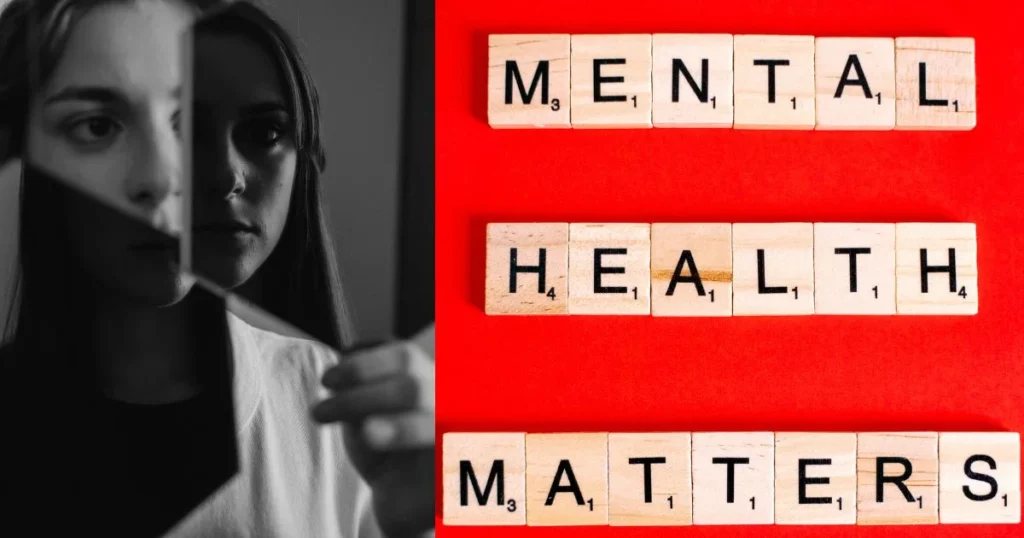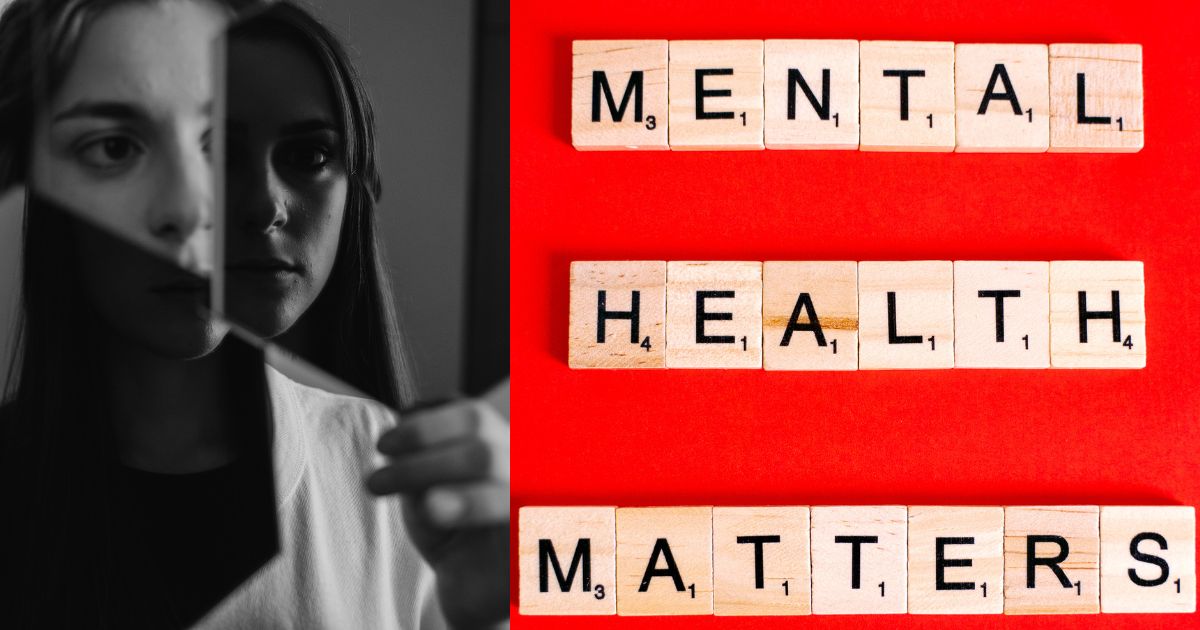What exactly is Mental Health?
Mental health is a vital aspect of our overall well-being, yet it is often overlooked or stigmatized. While physical health is typically seen as a priority, it is important to understand that our mental health is just as important. Mental health refers to our emotional, psychological, and social well-being. It affects how we think, feel, and behave in our daily lives, as well as how we handle stress, interact with others, and make decisions.
Mental health encompasses a broad range of conditions, from relatively common disorders such as anxiety and depression to more severe illnesses such as schizophrenia and bipolar disorder. It can also be influenced by factors such as genetics, life experiences, and environmental factors.
It is important to note that mental illness is not a personal weakness or a character flaw. It is a medical condition that requires treatment, just like any physical illness. Seeking help for mental health issues is a sign of strength and can lead to improved outcomes and a better quality of life.
In this article, we will delve deeper into what exactly mental health is, the different types of mental illnesses, and the importance of seeking help and support. We will also provide tips for maintaining good mental health and reducing the risk of developing mental health issues.

What Exactly Is Mental Health?
Mental health refers to a person’s overall psychological and emotional well-being. It encompasses a wide range of factors, including how we feel about ourselves, how we interact with others, and how we cope with life’s challenges. Our mental health can impact our thoughts, feelings, and behaviors, and it can have a profound effect on our overall quality of life.
You may also like..What Affects Mental Health? Discover 6 Factors 6 Benefits Of Yoga For Mental illness What Helps People cope with Depression How Can I Relieve Stress How Yoga Can Relieve Stress and Anxiety: 6 Best Tips Anxiety-causes,symptoms,&; Treatments
The Components of Mental Health
There are several components of mental health, each of which contributes to our overall well-being. These include emotional, social, psychological, behavioral, and spiritual factors.
1.Emotional:Emotional health refers to our ability to manage our emotions and express them in a healthy way. This includes the ability to recognize and regulate our emotions, as well as the ability to cope with stress and adversity.
2.Social:Social health refers to our ability to form and maintain healthy relationships with others. This includes the ability to communicate effectively, establish boundaries, and resolve conflicts in a constructive way.
3.Psychological:Psychological health refers to our ability to think clearly and make sound decisions. This includes the ability to problem-solve, think critically, and maintain a positive outlook.
4.Behavioral:Behavioral health refers to our ability to engage in healthy behaviors and avoid harmful ones. This includes the ability to maintain a healthy diet, get enough exercise, and avoid substance abuse.
5.Spiritual:Spiritual health refers to our ability to find meaning and purpose in life. This includes the ability to connect with others, engage in spiritual practices, and find fulfillment in our work and hobbies.
Mental Illnesses
Mental illness refers to a wide range of conditions that affect a person’s mental health. These can include depression, anxiety, bipolar disorder, schizophrenia, and many others. Mental illnesses can have a profound impact on a person’s thoughts, feelings, and behaviors, and they can be difficult to manage without appropriate treatment.
Common Types of Mental Illness
Depression, anxiety, and bipolar disorder are some of the most common types of mental illness. Each of these conditions can manifest in different ways, and they can have a significant impact on a person’s daily life.
Causes of Mental Illness
The causes of mental illness can be complex and multifaceted. Some factors that may contribute to the development of mental illness include genetics, environmental factors, and life experiences.
Signs of Mental Illness
Recognizing the signs of mental illness can be challenging, as they can manifest in different ways depending on the person and the condition. However, there are some common signs to look out for.
1.Behavioral Signs
Behavioral signs of mental illness can include changes in appetite or sleep patterns, withdrawal from social activities, and difficulty functioning at work or school.
2.Emotional Signs
Emotional signs of mental illness can include feelings of sadness, hopelessness, or worthlessness. Some people may also experience anxiety or irritability.
3.Cognitive Signs
Cognitive signs of mental illness can include difficulty concentrating or making decisions. Some people may also experience disorganized thoughts or memory problems.
4.Physical Signs
Physical signs of mental illness can include fatigue, headaches, and digestive problems. Some people may also experience changes in their appetite or sex drive.
Treatment Options for Mental Illness
There are several treatment options available for mental illness, including medication, psychotherapy, and alternative treatments.
1.Medication
Medication can be an effective treatment option for many types of mental illness. There are several types of medications available, including antidepressants, antianxiety medications, and antipsychotics.
2.Psychotherapy
Psychotherapy, also known as talk therapy, can be an effective treatment option for many types of mental illness. There are several types of therapy available, including cognitive-behavioral therapy, interpersonal therapy, and psychodynamic therapy.
3.Alternative Treatments
Alternative treatments, such as meditation, yoga, and acupuncture, can also be effective in treating mental illness. These treatments may be used in conjunction with traditional treatments or on their own.
Stigma Surrounding Mental Illness
Unfortunately, there is often a stigma surrounding mental illness, which can prevent people from seeking the help they need. Stigma can also lead to discrimination and social exclusion for those with mental illness.
Effects of Stigma
Stigma can have several negative effects on those with mental illness, including decreased self-esteem, social isolation, and difficulty accessing healthcare.
Ways to Combat Stigma
There are several ways to combat stigma surrounding mental illness, including education and awareness campaigns, support groups, and advocacy.
Promoting Mental Health
In addition to treating mental illness, it is important to promote mental illness and well-being. There are several strategies for promoting mental health, including practicing self-care, engaging in social activities, and seeking support when needed.
 Strategies for Promoting Mental Health
Strategies for Promoting Mental Health
Strategies for promoting mental health can include getting enough sleep, eating a healthy diet, getting regular exercise, and practicing stress-management techniques.
Importance of Self-Care
Self-care is an important part of promoting mental health. This can include activities such as meditation, journaling, and spending time in nature.
Conclusion
Mental health is an important aspect of overall well-being. By recognizing the components of mental health, understanding mental illness, and promoting mental health and well-being, we can all take steps to support ourselves and those around us.
FAQs
Is mental illness curable?
While mental illness is treatable, it may not be curable. However, with appropriate treatment and support, many people with mental illness are able to manage their symptoms and lead fulfilling lives.
How can I support someone with a mental illness?
Supporting someone with a mental illness can involve listening without judgment, offering practical support, and encouraging them to seek professional help.
Can mental health affect physical health?
Yes, mental health can have a significant impact on physical health. Mental illness can lead to physical symptoms such as fatigue, headaches, and digestive problems, and it can also increase the risk of developing certain physical health conditions.
Can meditation help with mental health?
Yes, meditation can be an effective tool for managing symptoms of mental illness and promoting overall mental health and well-being.
What are some ways to improve mental health?
Some ways to improve mental health include practicing self-care, engaging in social activities, seeking professional help when needed, and engaging in stress-management techniques such as meditation or yoga.
How common are mental illnesses?
Mental illnesses are quite common. According to the National Institute of Mental Health, an estimated one in five adults in the United States experiences mental illness in any given year.
Can children and teenagers experience mental illness?
Yes, children and teenagers can experience mental illness just like adults. In fact, many mental illnesses first appear during childhood or adolescence.
Can lifestyle factors affect mental health?
Yes, lifestyle factors such as diet, exercise, and sleep can all have an impact on mental health. Eating a healthy diet, getting regular exercise, and getting enough sleep are all important for promoting good mental health.


 Strategies for Promoting
Strategies for Promoting 


Your point of view caught my eye and was very interesting. Thanks. I have a question for you.